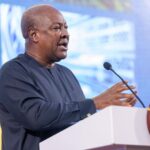Abuja—Nigeria’s reform community witnessed a landmark moment with the maiden edition of the Conference of Freedom Advocates (CFA), the country’s first national gathering devoted to advancing liberty, limited government, and free markets. Organized by the Liberty Center, the event convened over 100 reform advocates, journalists, academics, civil society leaders, and student activists—united by a shared mission to rethink reform and chart a freer, more prosperous Nigeria.
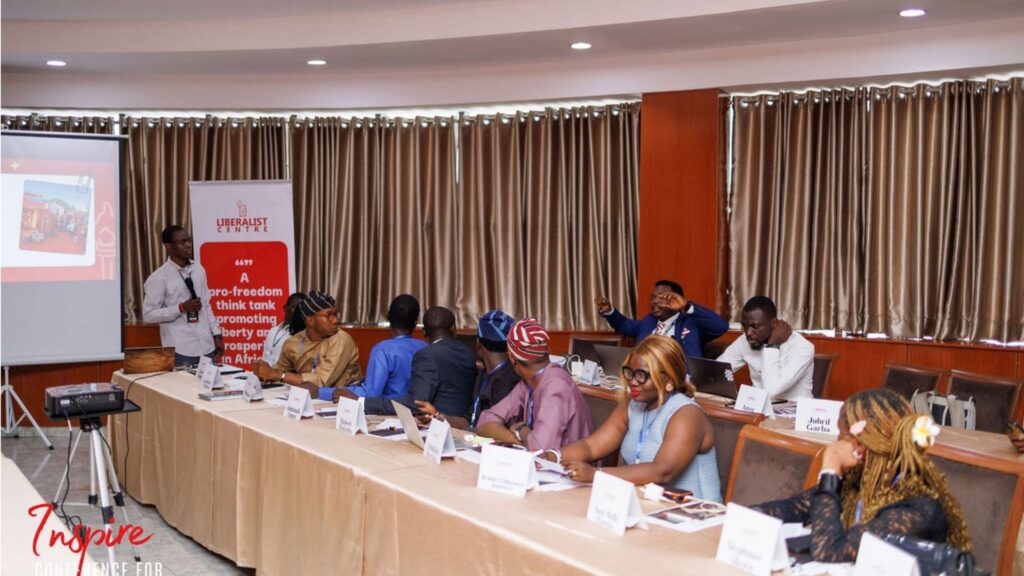
Themed “Inspire,” the conference was a bold call to action for a new generation of reformers to ignite ideas that could drive liberty, prosperity, and accountable governance across the continent. Setting the tone for the day, the Executive Director of the Liberty Center, Abdullah Tijani, delivered a stirring welcome address and cornerstone talk that urged participants to challenge the notion that progress must come at the expense of others. He emphasized that the foundation of freedom begins with knowledge, understanding, and education, calling on attendees to become informed voices for reform. Tijani also announced the launch of two landmark publications—“The State of Economic and Social Well-being in Liberalist Africa” and “Ideas that Form a Liberalist for a Prosperous Africa.” Both works explore the ideological and practical pathways to economic liberty and social advancement across the continent.
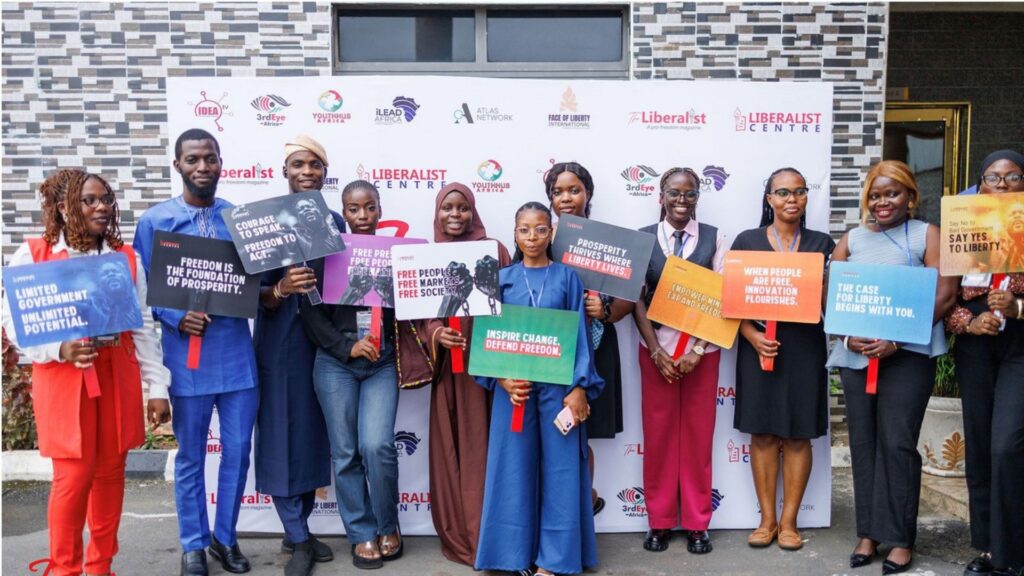
The high-level panel discussion titled “The Government We Need and the One We Don’t” became one of the conference’s most engaging sessions. Development practitioner, Iniobong Usen identified the petroleum subsidy as Nigeria’s “biggest elephant in the room,” urging policymakers to address its long-term economic distortions. Governance advocate Ibrahim Faruk centered his remarks on the erosion of public trust, lamenting the widening gap between the government and citizens. “We don’t trust our political institutions,” he said. “It’s our duty as citizens to question the government and demand accountability.” Faruk further challenged Nigerians to transform awareness into action by exercising their rights to vote, engage, and reform.
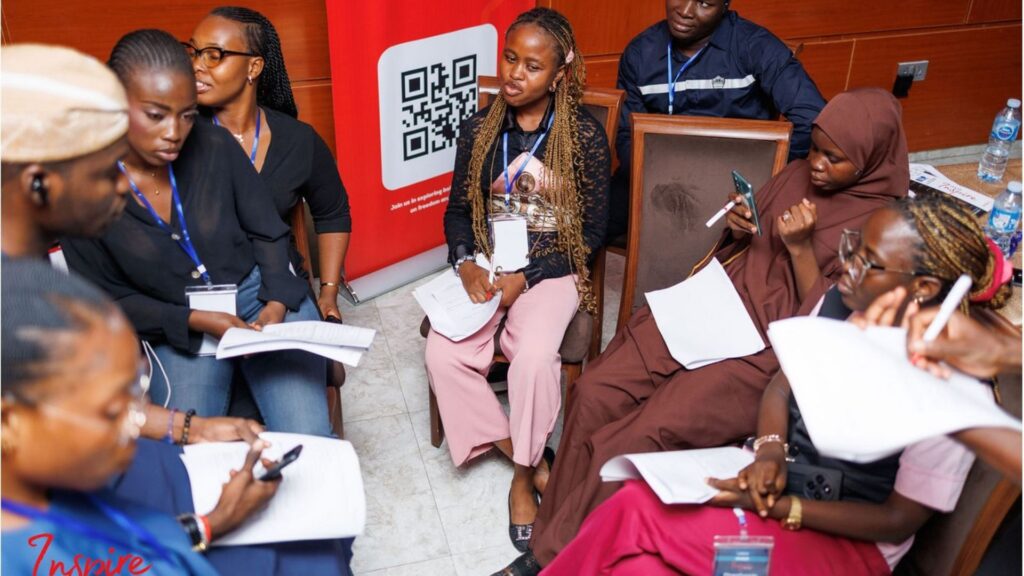
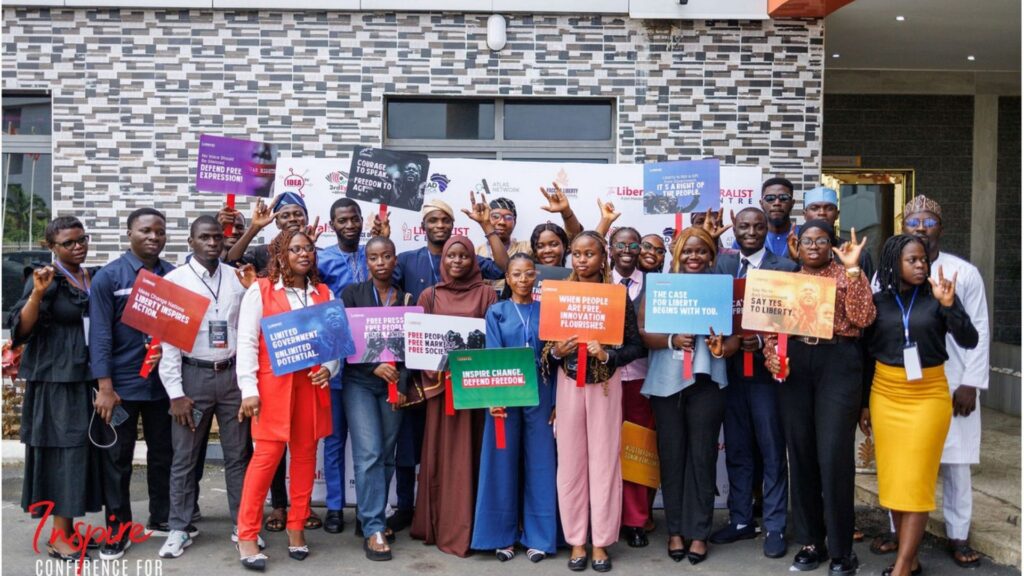

Activist and social impact innovator Benita Ezumezu called for deeper civic engagement, stressing that citizen participation is both a right and a responsibility. “Every voice matters,” she declared, encouraging young people to leverage technology and innovation as tools for development. Citing a report from the Innovation Collaboration Summit (ICS) that noted over 200 innovation hubs across Nigeria, she questioned how effectively the government is utilizing these platforms to empower citizens and solve national challenges. “We don’t have to compete globally,” she remarked, “but we do have global challenges.” She urged young Nigerians to embrace research and technological solutions as key drivers of progress.
The conference also featured concurrent sessions on “Youth Agency, Ethics, and Social Innovation in Africa,” and “Voices of Liberty: Advancing Free Expression and Media Freedom in Nigeria.” The latter brought together media professionals and digital rights advocates to address the growing threats to press freedom and the responsible use of digital platforms. Media freedom advocate Christiana Longe emphasized that “freedom is not a luxury in a democratic society—it is a necessity.” Citing data from the CJID Openness Index, she described the fragile state of Nigerian media freedom, noting that journalists and human rights defenders continue to face violence, intimidation, and excessive taxation. She called on female journalists to resist silencing and uphold their role as watchdogs of democracy.
Expert policy analyst, Chike Donald expressed concern over Nigeria’s democratic health, stating that the problem is not the absence of policies but the failure to implement them. He urged the government to view civil actors as partners rather than competitors in shaping national narratives. Digital literacy advocate Yusuff Laidi, on his part, highlighted the importance of responsible information sharing and smart regulation in the digital era, pointing out that “technology can be both a tool for progress and a weapon of manipulation, depending on how we use it.”
Another major highlight was the launch of The Liberalist Magazine, a new publication exploring the intersections of freedom, governance, and economic reform across Africa. Contributed and Edited by Abdullah Tijani and journalist Ibrahim Adeyemi, the magazine seeks to “tell local stories for a global audience,” examining Africa’s political and economic realities while advancing the cause of accountability and free markets. Its first two editions: “Subsidy for Sale” and “Africa, Why You Dey Like This?”—offer critical analyses of Africa’s governance crises and the need for systemic reform.
Adeyemi noted that the publication is designed to bring “accountability from people to government and government to people,” serving as a mirror for both policymakers and citizens. The magazine also aims to provide investors and reformers with actionable insights and data-driven perspectives on African economies, for policy improvement.
In a reflective closing session from the fireside chat on “The Path Ahead for Nigerian Freedom Advocates,” provided an introspective conclusion. Anna Suberu, Alumni Engagement Manager at Students for Liberty, emphasized the importance of perseverance in reform movements, saying, “We must be ready to do the boring work — that’s how change happens.” The session underscored the need for sustained civic engagement and long-term strategies for institutional reform.
In addition, the conference witnessed the unveiling of the Freedom in Africa Report (FinAR) 2025, a comprehensive assessment of economic freedom, prosperity, and governance trends across the continent. The report serves as a resource for policymakers, researchers, and reform advocates to measure progress and identify areas.
The movement of the Conference of Freedom Advocates made one thing clear; Nigeria’s reform community is finding its voice again. With renewed energy, collaboration, and conviction, these advocates are not merely discussing liberty, they are shaping the blueprint for a freer, fairer, and more prosperous Africa.
Cc: Cynthia Bassey


